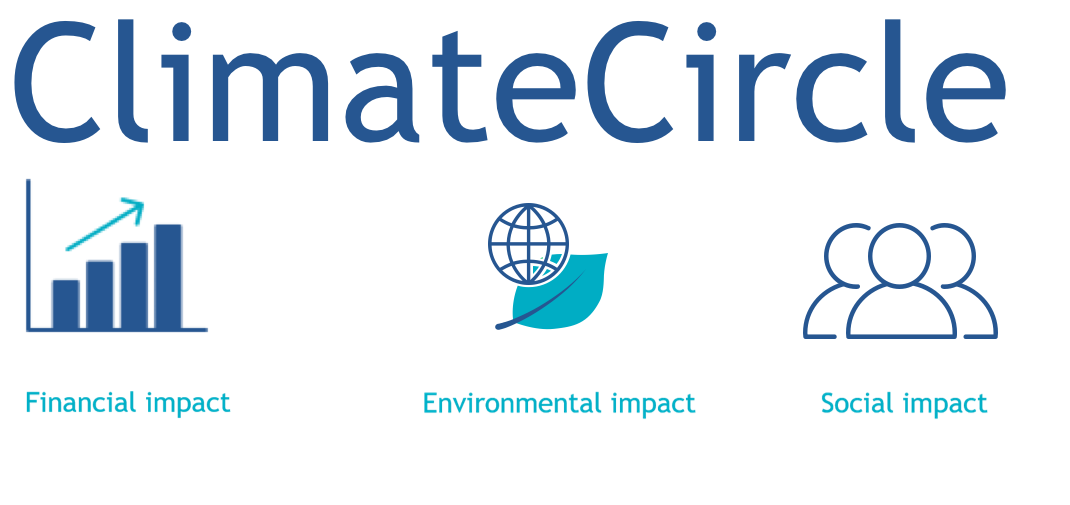Safi Sana is a great example of how circular economy business models can unlock the value of human waste. Emerging market companies with business models related to water & sanitation are invited to connect with Africa Funded to assess fit with the seed incubator program for water & sanitation in developing countries.
As 2.4 billion people worldwide lack adequate sanitation, there is a big need for business models that can deliver sanitation at scale. The circular economy concept clears the way for new business models providing access to sanitation in developing countries: unlocking the value of human waste as a resource to address unmet needs. One example is Safi Sana, launched by Aqua for All, providing new platforms for transforming liquid and organic waste into valuable products. Africa Funded will support this company with feedback on their business plan in the context of the Incubator for Water, Sanitation and Solid Waste in partnership with Aqua for All and WASTE.
Solid and liquid waste management is usually a large financial and human burden for (local) governments as well as for the local population in developing countries. In the Safi Sana model, the ‘burden’ of organic waste is transformed into the end-products biogas, organic fertilizer and irrigation water. For Safi Sana ‘high quality waste’ is a key resource and the sourcing activities are an important driver for safe and sustainable sanitation at household level.
The Safi Sana model
The Safi Sana system consists of a resourcing scheme, factory to turn waste into biogas and nutrient-rich waste water and compost, plus a business scheme to allow maximum benefit of these outputs: turning biogas into electricity, and a nursery that uses compost and waste water.
Safi Sana now sells turn-key factories for (peri)urban towns, with a locally embedded waste sourcing and sales organisation for 100% re-use and cost recovery. After turn-key completion, the factory is handed over to a local operator on the basis of a license. The license includes operational support and quality control. Revenue of the factory is made through sale of fertilizer and energy products.
The model is based on a public/private partnership: the government is the Safi Sana client and makes a one-time investment for the turn-key factory. The private sector is license holder and responsible for operations, sales and recovery of OPEX (with profit).
Ghana and other countries
Safi Sana is building her first platform at scale in Ghana, where waste is a big problem, making the availability of faecal waste very large. Most of the faecal waste in Accra is dumped untreated into the sea, left to clutter sewers or attract rodents. Cost estimates of bad sanitation go as high as 30% of GDP per person above 5 years old and it is estimated to hamper economic growth by 6%. At the same time, Ghana is a net-importer of basic food such as vegetables and rice, as well as fertilizer, and only 8% of the farmers have access to soil nutrients.
As these challenges are not unique to Ghana, Safi Sana believes that once the model is proven in Ghana, there is a great opportunity for expanding in other areas in Ghana and in other countries. Once the model is proven to be financially viable, Safi Sana will focus on delivery and sales of turnkey platforms.
Company
Safi Sana was founded in 2010 as an initiative of Aqua for All, Rabobank, Shell and DHV, who saw potential in creating value out of feacal sludge in order to improve access to safe saniation in developing countries. Financial contributions so far have been made by Aqua for All Foundation, Dutch Ministry of Foreign Affairs, Ministry of Energy Ghana, International Fertiliser Development Centre (IFDC), the African Development Bank and Dutch private investors.
Over the past years, Safi Sana Holding BV has invested €2.5M to test technologies, treatment processes and market conditions for sale of end products and to develop monitoring systems, and educational programs.
Safi Sana has 3 FTEs In the Netherlands and 12 FTEs in Ghana. The Ghanaian company Safi Sana Ghana Limited was set up to be responsible for the implementation of the project in Ghana. This Ghanaian company is 100% owned by Safi Sana Holding BV, which is 100% owned by Safi Sana Foundation.
Next steps
Africa Funded supports Safi Sana with feedback sessions to fine-tune their business plan for next steps towards follow-up funding. Safi Sana Holding has built expertise on how to transform organic waste into valuable end products while at the same time providing improved sanitation services. Safi Sana’s products and services are project management, support and monitoring, consultancy, research and innovation. The company has high growth ambitions. After knowledge development related to this solution they see unlimited growth opportunities.
Emerging market companies with business models related to water & sanitation are invited to connect with Africa Funded to assess fit with the seed incubator program for water & sanitation in developing countries.

